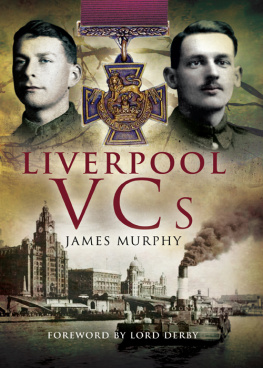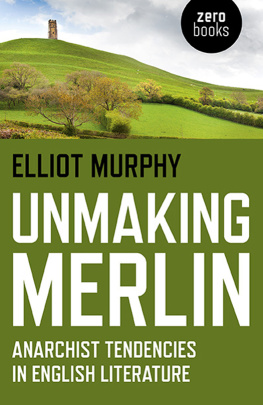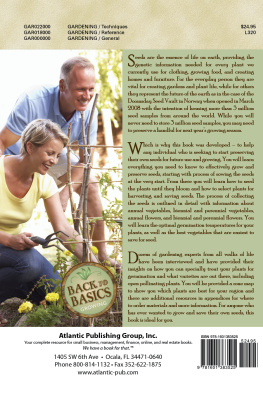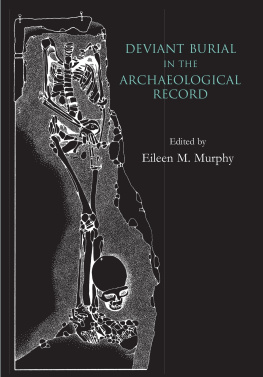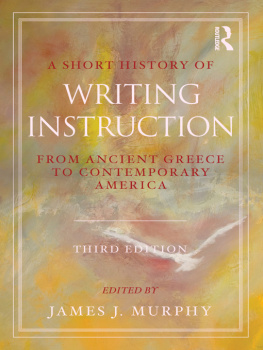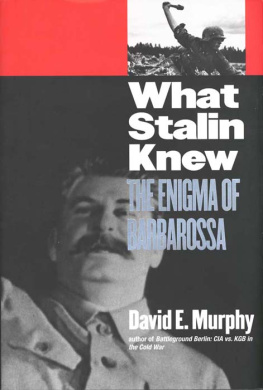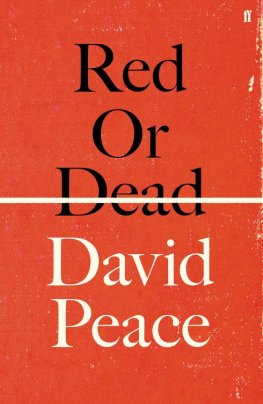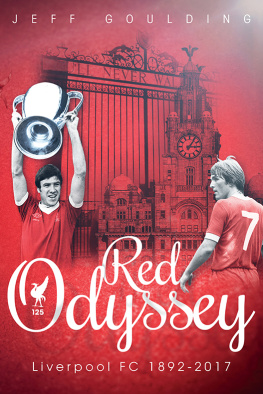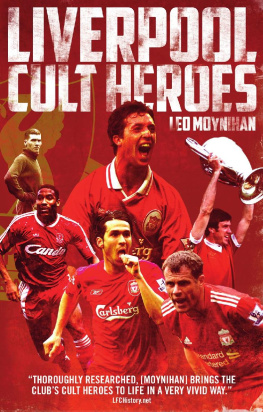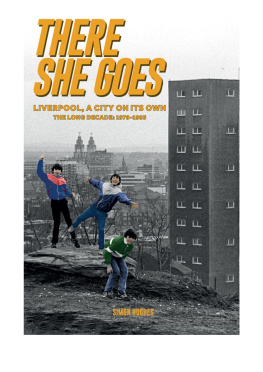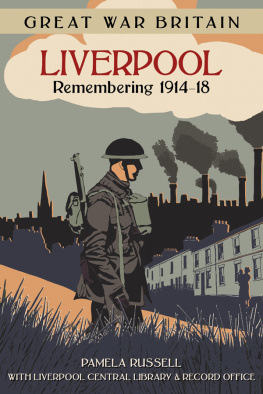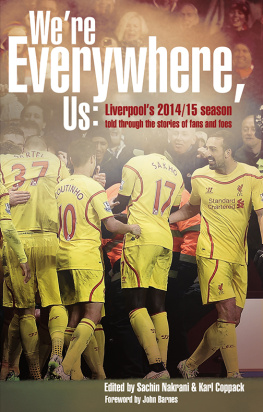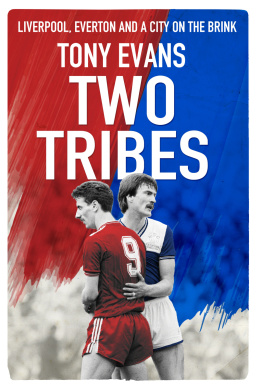For
23127264 Trooper James Ronald Flynn, 15/19 Royal Hussars
and
P063276D Marine Patrick Dominic Murphy, Royal Marines.
First published in Great Britain in 2008 by
Pen & Sword Military
an imprint of
Pen & Sword Books Ltd
47 Church Street
Barnsley
South Yorkshire
S70 2AS
Copyright James Murphy
ISBN 978-1-84415-780-8
ISBN 9781844686421 (epub)
ISBN 9781844686438 (prc)
The right of James Murphy to be identified as Author of this Work has been asserted
by him in accordance with the Copyright, Designs and Patents Act 1988.
A CIP catalogue record for this book is available from the British Library.
All rights reserved. No part of this book may be reproduced or transmitted in any
form or by any means, electronic or mechanical including photocopying, recording or
by any information storage and retrieval system, without permission from the
Publisher in writing.
Typeset in 11/13 Ehrhardt by Concept, Huddersfield, West Yorkshire
Printed and bound in England by CPI UK
Pen & Sword Books Ltd incorporates the imprints of Pen & Sword Aviation,
Pen & Sword Maritime, Pen & Sword Military, Wharncliffe Local History,
Pen & Sword Select, Pen & Sword Military Classics, Leo Cooper, Remember When,
Seaforth Publishing and Frontline Publishing
For a complete list of Pen & Sword titles please contact
Pen & Sword Books Limited
47 Church Street, Barnsley, South Yorkshire, S70 2AS, England
E-mail:
Website: www.pen-and-sword.co.uk
Contents
For Valour
Thus saith the Queen! For him who gave
His life as nothing in the fight,
So he from Russian wrong might save
My crown, my people and my right;
Let there be made a cross of bronze
And grave thereon my queenly crest,
Write VALOUR on its haughty scroll,
And hang it on his breast.
Thus saith the Land! He who shall bear
Victoria's cross upon his breast,
In token that he did not fear
To die, had need been, for her rest;
For the dear sake of her who gives,
And the high deeds of him who wears,
Shall, high or low, all honour have
From all, through all his years.'
Edwin Arnold, February 1856
Introduction
The Victoria Cross is a potent symbol of courage and heroism and is Britain's, and arguably the world's, most prestigious award for gallantry. It is also an emblem of our humanity, amid the thunder and crash of man's most inhuman of endeavours, war: in moments of crisis on the battlefield, some men find extra reserves of strength and courage to renew the challenge and go forward to offer their own lives so that others might live. Those who display such altruism, such conspicuous bravery, or some daring or pre-eminent act of valour or selfsacrifice or extreme devotion to duty in the presence of the enemy, are the bravest of the brave and merit the honour of the Victoria Cross.
The award was instituted by Royal Warrant signed by Queen Victoria in 1856, and was made retrospective to the opening forays of the Crimean War in the summer of 1854. This conflict, the first major campaign Britain had fought in forty years, witnessed extraordinary bravery on the part of the men in British uniforms not only in the face of the enemy but also in the face of incompetent leadership at the highest levels, which resulted in five times the numbers of casualties off the battlefield as on it. The war was a success for British and French force of arms, and in recognition of the astonishing courage displayed by her troops under such adverse conditions, the young Queen sought to honour the bravest, irrespective of rank, with the grant of her new honour.
The official announcement of the first awards of the Victoria Cross was made in the London Gazette, and the first to be honoured was Charles Lucas, an Irishman from Armagh, serving with the Royal Navy. Together with sixty-one other veterans of the Crimea campaign, he attended the initial presentation at Hyde Park on 26 June 1857. For the navy, the medal was dressed with a blue ribbon, for the army, crimson. But, since the formation of the Royal Air Force in the latter months of the First World War, all awards have been made with crimson ribbons.
Under Rule 13 of the warrant, a serviceman could be elected to the award by his comrades. Amendments have been made to the original warrant over the years: originally it bestowed a pension or annuity of 10 per annum on the recipient; this has now risen to 1,495; and the award is now open to all men and women, irrespective of nationality, serving under British command. Since 1920, the posthumous grant of the honour has been officially allowed, and the award is no longer forfeited by the holder after conviction for a criminal offence. The Victoria Cross has been granted on only 1,357 occasions in its 154-year history, and three men have been honoured twice, Captain Surgeon Arthur Martin-Leake, Captain Noel Chavasse and Captain Charles Upham.
This volume chronicles the lives and times and gallant deeds of a small contingent of Victoria Cross holders, twenty-three men of Liverpool who covered themselves in glory on foreign battlefields while the city was growing up. Eighteen were Dicky Sams, native-born Liverpudlians, and five made a home in the city and are buried within its boundaries. They came from a variety of backgrounds and walks of life labourers, clerks, tradesmen, servicemen, volunteers and professional soldiers. Some were rich, some knew only poverty; three were rascals, the remainder angels; a few were illiterate, but most could read and write. However, the battlefield is a great leveller, and the courage and equanimity these men showed in the face of the enemy made them equals. Five died bravely in battle, four returned home unnoticed to a last resting place in a pauper's grave, some were buried with full military honours, while others declined that reward. All the survivors had in common a quiet dignity and an abiding modesty, and would not permit themselves to be singled out and lionized for what they had accomplished to aid their comrades under fire.
There has been renewed interest in the deeds of the Victoria Cross heroes of Liverpool, mainly because of the industry and dedication of Denis Rose and the late Sid Lindsay. Some of the men herein may be unfamiliar to the reader, others may not, but the stories of two men who are usually associated with the city, Patrick Mylott VC and Charles Anderson VC, have been omitted. The reasons are given in the Appendix. A third hero is also missing, a man whose name is synonymous with Liverpool and Victoria Cross Noel Chavasse, dual winner of the honour.
Born in Oxford in 1884, Noel Chavasse came to Liverpool in 1900, and during the First World War served as a medical officer attached to 10th Battalion, the King's (Liverpool) Regiment, the Liverpool Scottish. His first honour for heroism came on the Somme in 1916, the second during the Third Battle of Ypres in 1917, when he died of wounds sustained attending the wounded. He is buried at Brandhoek New Military Cemetery, Belgium. Much has been written about this brave man, and though seen by many as a Liverpool hero, since he was neither born nor buried in the city, he does not fulfil the criterion for this series of narratives. However, his heroism is a thread which runs through and connects the tales of several of the Liverpool heroes who fought on the Western Front.
It is hoped that this book will maintain the revival of interest in the Victoria Cross heroes of Liverpool. They witnessed the days when commerce, progress and growth elevated Liverpool to become the most cosmopolitan city of Britain and gateway to the British Empire. Much has changed in the city since their time, but the honour they carried from foreign battlefields to the city is forever woven into its history and heritage.
Next page
